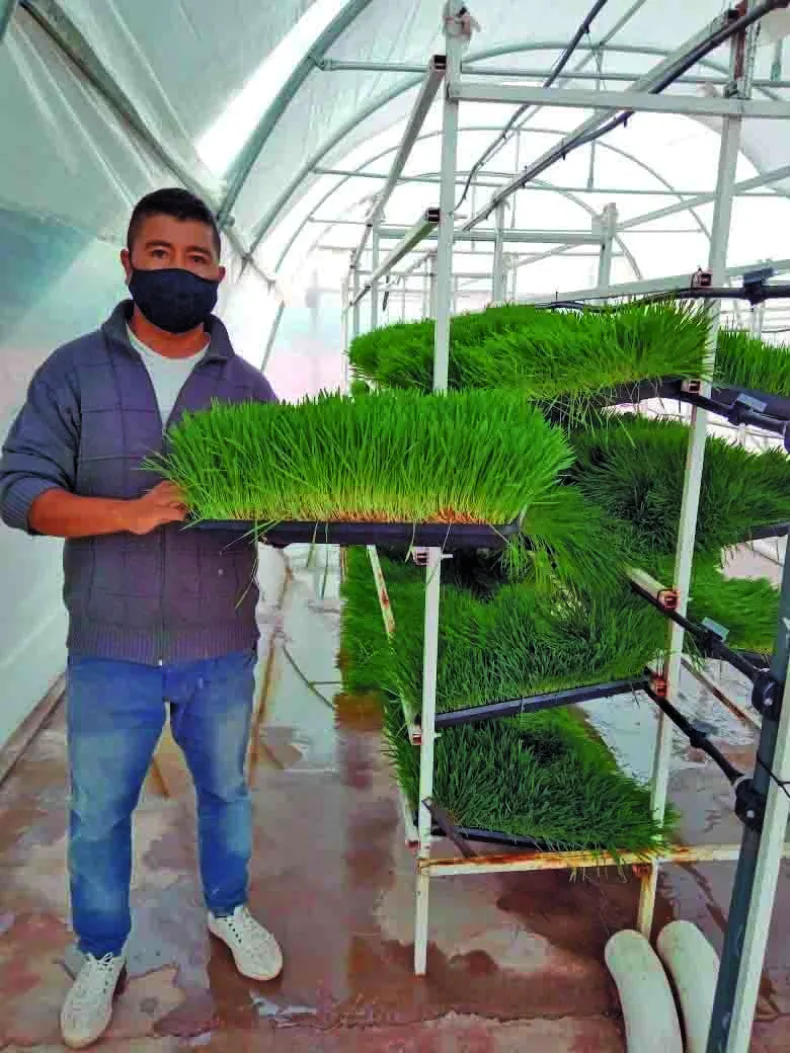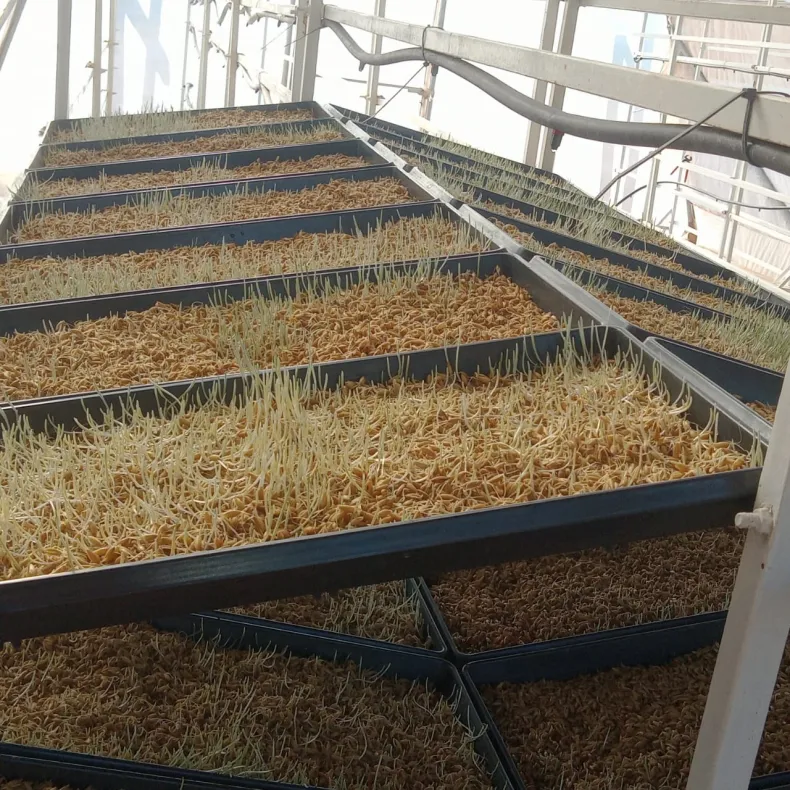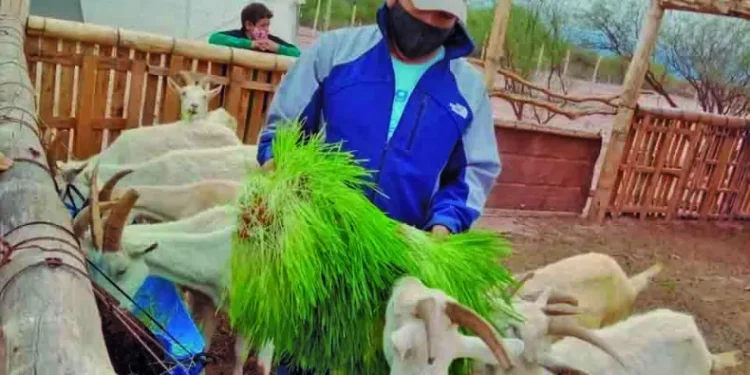The objective of the Directorate of Policies for Equity is to help indigenous communities to strengthen themselves and become part of a productive matrix. The production of hydroponic forage allows them to strengthen the goat livestock production they have.
In 2022, from the Directorate of Policies for Equity, Ministry of Human Development, a project for the production of hydroponic fodder was carried out with Aboriginal communities in Bermejo, with the aim of strengthening and strengthening the feeding of the posts of this rural community.
The results were so good that in 2023 it is planned to grow and move forward so that other communities have this type of hydroponic feeding. “For this reason, we are going to continue installing hydronic systems, for this we have planned to put one on May 25, one in Sarmiento and the other in the Defunct Correa,” explained Raúl Alonso, director of Policies for Equity, of the Ministry of Human Development. He affirmed that this type of projects helps food sovereignty and would not be possible without the direction and support of Governor Sergio Uñac and the Minister of Human Development, Fabían Aballay.

According to what he reported, these new hydroponic systems that will be installed “will be smaller since they will adjust to the number of animals that there are in each of the original communities where they are installed.” These hydroponic systems will be built and “they will have the possibility of expanding the warehouses, if the demand for hydroponic fodder requires it,” the official explained.
The first hydroponic forage project
Raul Alonso, from the Equity Policy Directorate, told that the first hydroponic forage production system was installed. It was installed in 2021 and has achieved very important results in the community. “The 80 square meter hydroponic system was put into production with very good results.”
For this, experiments were made with different types of fodder. “With this we have managed to supplement in one part of the year, the winter, the feed of the goats that they raise in the area.” To this is added, that they managed to make water use more efficient, “we are using two and a half liters of water for every liter of dry matter that is produced against 500 to 670 liters of the traditional system depending on the type of forage”.
At the same time, he explained that they made the decision to stop production in summer, because production is difficult due to climatic issues, especially due to the high temperatures that affect the seeds. That is why “advised by the Rural Society of Córdoba, who have extensive experience in hydroponic forage suspend production from December to March,” Alonso explained.
This situation does not impact on the feeding of the flock, because in summer is when there is the greatest flowering of the native flora, with which the animals can be fed. When it came to producing, they worked with barley, which is the one that gives them the best results, corn and wheat. They could work alfalfa but they would have to adapt the system to protect the roots of the crop and it would be quite complicated.
This is why “in the winter we achieve the production of hydroponic forage and we can rest on cooperation with the environment for the reproduction of native flora”.
PRODUCTION OF ESSENTIAL OILS
Working with indigenous communities also has other lines of action. “We are working on the development of essential oil factories. There are already two that are working, one in Valle Fértil and the other in Caucete,” Raúl Alonso said.
He explained that these establishments are “making jarilla oil and hydrolates. In addition to this they make flavored salts.” In order to win markets, they sent samples to Brazil.”
When elaborating on the subject, he said that “there are national laboratories that are interested in buying oils and hydrolates to link, for example, with the pharmaceutical industry, medicine and cosmetics.”

When he looks at the near future, he says that “when this starts to move and demand, we realize that training is needed, such as the production of soaps.”
Within this production line, he said that “we are about to sign an agreement with a factory for the production of soaps. The factory that demands the products needs the soaps in its port folio, so it is going to outsource them to the producers of the original communities.” They are also going to work with other vulnerable communities in the production of this type of element.”
A source: https://www.diarioelzondasj.com.ar










